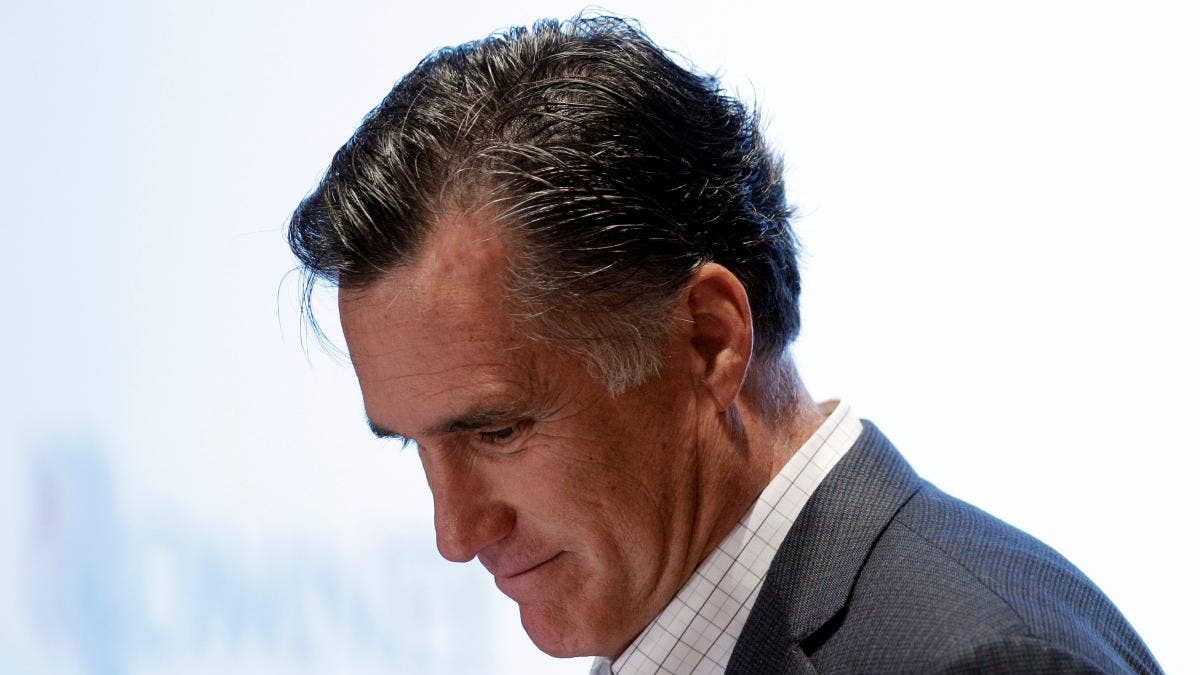
Former Gov. Mitt Romney (AP Photo/Carlos Osorio)
There's a similarity surrounding Mitt Romney's 2012 campaign that's all too familiar to his 2008 run. Like his Mormon faith four years ago, Romney faces a challenge unique to the Republican field. Health care.
The fact that the health care law he signed in Massachusetts in 2006 has been dubbed Romneycare makes it even worse. No matter how many speeches he makes aimed at putting the electorate at ease, it's doubtful to work entirely since Romney continues to stand by his signature piece of legislation.
In his official announcement declaring his candidacy for the Republican nomination Thursday in New Hampshire, Romney said, "We will return responsibility and authority to the states for dozens of government programs - and that begins with a complete repeal of Obamacare." Until voters choose a nominee, Romney will work to convince them he's 100 percent against government run health care.
Five of the best political analysts around weigh Romney's 2008 religion factor against his 2012 health care factor.
Brit Hume, Senior Political Analyst for Fox News
"I never thought Romney's religion was a big problem for him in '08. What hurt him was his seeming lack of authenticity, and his switches on such issues as abortion, gun control and gay rights. I think Romneycare's unmistakable similarity to Obamacare is a bigger problem now than his faith ever was in 2008. And he's stuck with the problem because he can't afford further switches."
David Yepsen, Director of the Paul Simon Public Policy Institute and Former Political Reporter for the Des Moines Register
"I think Romney's problem with health care is far larger in 2012 than any issues he had with his faith in 2008. Romney's biggest problem in 2008 was the authenticity issue. Many activists weren't certain they knew who he was, what he stood for and whether someone with his wealth understood their problems. Some social conservatives thought he changed positions on issues like abortion. His problem in 2012 will be explaining how his health care legislation, which he touted in 2008, isn't another change of heart. If he doesn't do that correctly, he could reinforce negative impressions some social conservatives already have of him."
Jason Cabel Roe, Founding Partner of Republican Consulting Firm Revolvis
"I think health care is a bigger hurdle. I know a lot of Romney '08 supporters who won't support him this time because of health care. It's not that they are necessarily hostile to his plan in Massachusetts, but that they recognize the political liability it presents in winning the nomination. Coupled with his Mormon faith, they are significant challenges for him."
Larry Sabato, Director of the University of Virginia Center for Politics
"Mormonism was one of several factors that sunk Romney in 2008. It still isn't a plus, particularly in states like Iowa and South Carolina, but voters have had four years to get used to the subject. The health care controversy is fresher and more intense among GOP activists. My guess is that Romneycare will be a bigger obstacle in 2012 than Mormonism was-perhaps significantly so. The problem with assessing this is that people often cite an ‘acceptable' reason to oppose a candidate to hide a ‘less acceptable' motive. Heath care policy is legitimate in anybody's book, but religious prejudice is not a pretty thing."
Juan Williams, Fox News Political Analyst
"I think Mormonism still is a problem. Americans still have some difficulty accepting it as a full-fledged faith. The health care issue is one that works against him at this time, because the Tea Party, which is the most dynamic part of the grass roots movement, is largely based on exactly the health care reform he enacted in Massachusetts. It's going to be a difficulty. It's almost a matter of people having to decide there is no better candidate, and they come to accept that he has this major flaw. It's either that or somebody else. They have to find an alternative and so far they have not done that."
























